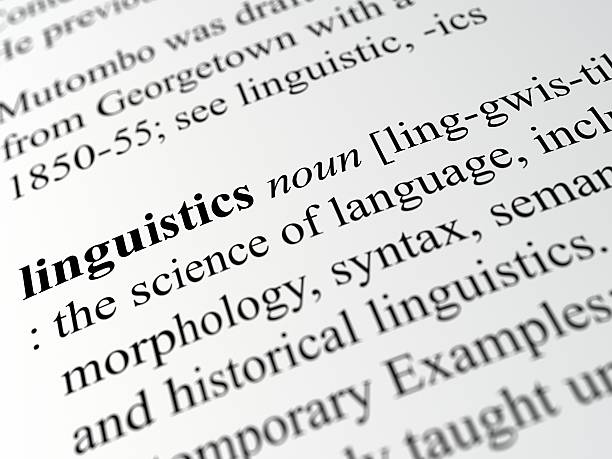Table of Contents
Studying a linguistics major is a good choice because it offers you a lot of opportunities especially in the job market. This article explores linguistics major, opportunities in it, and how to become one.
If you are wondering; what is a linguistics major, you should understand that contrary to popular stereotypes, a linguistics major is not just the study of many languages. Although there is some truth in that, there is more to it.
What is a Linguistics Major?
A linguistics major is the scientific study of language and how humans use it. It involves the study of how children acquire language skills, how different languages influence the way people interact, how one language differs from the other and, language patterns.
Linguists may know about a lot of languages but not necessarily know how to speak a lot of languages.
How To Become a Linguistics Major.
The first step is making up your mind about the linguist career you will want to go into. This will help you decide what program and major of study you will concentrate on.
The second step is obtaining a bachelor’s degree. To enrol in a degree program, you must complete high school and obtain a high school diploma or GED. A high school diploma will provide linguists with background knowledge through courses such as Basic English, Grammar, and Literature.
Some linguist jobs such as interpreters and translators who work with the government do not require a degree but most linguist jobs do. A linguistics major will teach you strong language skills in English and fluency in at least one other language.
If you intend to learn and teach the English language, you need a bachelor’s degree and professional training in language pedagogy. Linguist researchers and analysts who work in information and technology companies, also need a linguistics major.
Those who intend to be professors of linguistics or carry out advanced research in linguistics academia need a Ph.D. which cannot be gotten without a degree and it is not mandatory to become fluent in other languages.
However, it is an advantage to acquire knowledge of at least one foreign language because it can provide a good background for language requirements in the future, as well as for jobs that involve translating, interpreting, or teaching languages.
READ ALSO: How to Teach Spanish | A Comprehensive Step-By-Step Guide.
Linguistics majors in colleges or universities studying courses in areas such as; phonology, semantics, grammatical structuring and analysis, foreign languages, language adaptation, and language in different places. It takes four years to complete a linguistics major or degree.
Students can combine a linguistics major with other related fields, such as communication, anthropology, human resources, or psychology, in a double major to give them more opportunities and prospects on the job market. A double major allows students to acquire more skills and become marketable in the other fields from which they combine their majors.
Students can go further to obtain a master’s degree in Linguistics. A master’s degree provides professional knowledge and credential in Linguistics with various practical applications, such as computational linguistics or sociolinguistics.
A master’s program is focused on teaching students about networking, acquiring job opportunities, and other career-related skills. This degree is best for students who desire to pursue a marketable career or private practice in linguistics. It takes twelve to twenty-four months to complete a master’s degree.
The next step is enrolling in an internship program. Although this is not compulsory that students should do this. Most employers require applicants to have experience in the field before they are offered the job. The easiest and most effective way to gain experience as a linguist is through internships.
Students and fresh graduates can volunteer at organizations such as the Red Cross and other NGOs, hospitals, schools, etc. This will not only help them gain experience but also allow them to improve their knowledge and skills as well as boosts their portfolio. Internships are very important in the areas of computational linguistics. This is because the job involves a lot of technical tasks.
Students can also research and take advantage of opportunities to study or intern abroad. This will allow them to get immersed in a foreign language and help them achieve fluency in the language. They will also get to learn about different cultures and how their cultures influence their languages. This knowledge is very useful to professional translators and interpreters.
After students have acquired the necessary education and experience they can then proceed to obtain a certification. This is not mandatory, especially for translators and interpreters but very beneficial. Certifications will provide more job opportunities and attract higher salaries.
The American Translators Association offers certifications in twenty-four different languages. Linguists are required to write and pass an exam and achieve a particular level of education and experience.
Certifications vary from state to state and some are offered by the government authorities for specializations in areas such as sign language, conference, court interpreters, healthcare translators, and to those who demonstrate proficiency.
Where Can I Obtain a Degee in Linguistics?
A degree in linguistics can be obtained from the following schools;
The University of Chicago.
The University of Chicago offers a degree in Linguistics as well as other opportunities like scholarships and internships. Students get the opportunity to be part of the Chicago Linguistic Society and take part in its annual conference that connects various scholars.
The University of Florida.
The University of Florida was ranked the 25th best school for languages and linguistics by College Factual. Linguistics Major UF offers coursework in areas like phonetics, syntax, semantics, and bilingualism.
The University of California.
Focuses on the study of unwritten languages and every subgenre of linguistics. The department of Letters and Science offers undergraduate programs in languages such as Hindu-Urdu, Korean, and Tibetan.
Brigham Young University.
Offers both undergraduate and graduate programs in Linguistics. BYU linguistics major offers courses such as computational linguistics and language acquisition.
READ ALSO: Bachelor’s Degree in Spanish | Program Information.
Other top schools for linguistics majors are Harvard University, Stanford University, and Michigan University.
Properties and Skills of a Good Linguist.
There are four basic linguistics skills and they are listening, speaking, reading, and writing. These skills are the most important to any job or career and they cut across other skills like;
Staying updated. One way to do this is by reading wide, studying, and researching consistently. To become successful as a linguist especially in areas of interpretation and translation, it is advisable to acquire knowledge of the history and other important affairs, that concern other lingoes and cultures. Reading, books, resources on different cultures, and watching documentaries in various languages can help develop your linguistic skills and multicultural knowledge.
Impressive intellectual. A linguist should be able to understand the complicacy, meaning, properties, social uses, and variation of different languages. A linguist should be able to use different languages to organize and explain ideas as well as be able to write, pass information and make speeches effectively.
Research Skills. Research in linguistics involves constructing logical theories and applying them, collating and comparing data historically as well as developing relevant research scopes.
Ability to pay attention to detail. As a linguist, you must have a sharp sense of detail and be able to listen to and identify the exact pronunciation of words and how to use them. You must also be able to identify the origin of words and languages.
Tolerance and strength. This is very important because learning a language, its history, and everything about it can be difficult. You will need to be patient and consistent about the learning process to understand every aspect of the dialect. If you intend to practice as a linguistics reacher, you will also need to exercise patience with your students, this will help them enjoy the learning process and comprehend proficiently.
Linguistics Major Jobs.
A linguistics major allows students to find jobs in areas such as finance, healthcare, science and technology, government, entertainment, or the law, as interpreters or translators.
What can I do with a major in Languages?
With a linguistics major, you can go into;
Advert and Marketing.
You can work for international advertising and marketing agencies and conduct research on the classes of sounds, the connections that people have with particular sounds and, what words would appeal to possible buyers.
Translation and Interpreting.
You can find jobs anywhere translators and interpreters are needed. They can work in government offices, hospitals, courts, and other sectors. You need to have a level of proficiency in syntax and other subfields of linguistics.
Publishing.
Linguists can work in the publishing industry, as authors, technical writers, editors, etc. They can also translate texts from one language to another.
Information Technology.
A linguistics major allows you to work in tech companies in areas like speech recognition, artificial intelligence, and language processing.
Lexicography.
Linguists can work on the advisory boards of dictionary publishers. Linguists who work as lexicographers must have an in-depth knowledge of phonology, morphology, historical linguistics, dialectology, sociolinguistics, and other areas of learning various dialects.
READ ALSO: Marketing Major | Everything You Need To Know About Becoming One.
Conclusion.
Most people ask “is Linguistics a good major?” Or “what can I do with a major in languages?”. This article has demonstrated that a Linguistics Major is worth it.
Frequently Asked Questions.
What is a linguistics major?
A linguistics major is the scientific study of language and how humans use it. It involves the study of how children acquire language skills, how different languages influence the way people interact, how one language differs from the other and, language patterns.
What kind of jobs can a linguistics major get?
A linguistics major can work as lexicographer, speech and language therapist, languages teacher, copy editor, proofreader or a role in communications.
is Linguistics a good major?
Linguistics major is worth it as students who major in linguistics acquire valuable intellectual skills, such as analytical reasoning, critical thinking, argumentation, and clarity of expression
Are linguists in demand?
Yes! Linguists are in high demand
What qualifications do you need to be a linguist?
You will need either of these degrees: (level and/or field)
Degree Level:
Bachelor’s, master’s, and doctorate degrees; a professional certificate or specialized training may be required
Degree Fields:
Linguistics, anthropology, computer science, or cognitive neuroscience; English or foreign languages and literature.
We Also Recommend Reading These.
- Bachelor’s Degree in Spanish | Program Information.
- The 10 Best Spanish Classes Near Me 2021.
- How to Teach Spanish | A Comprehensive Step-By-Step Guide.
- The Best 9 Online French Classes In 2021
- Marketing Major | Everything You Need To Know About Becoming One.
- 11 Paid Internships Abroad In Summer 2021.
- How Long Does it Take to Get a Masters Degree? See Program Duration
- How Long Does It Take To Get A GED?
- Green Degree | Top 10 Best Green Degrees and Schools For Study.
- The Best Dual Master’s Degree Programs Online 2021
- 9 Best Online Acting Classes 2021
- Top 13 Abroad Fall Internships for 2021 | See How You Can Secure An Internship.






